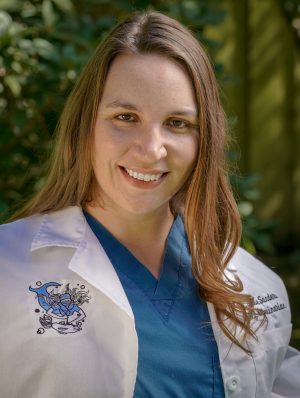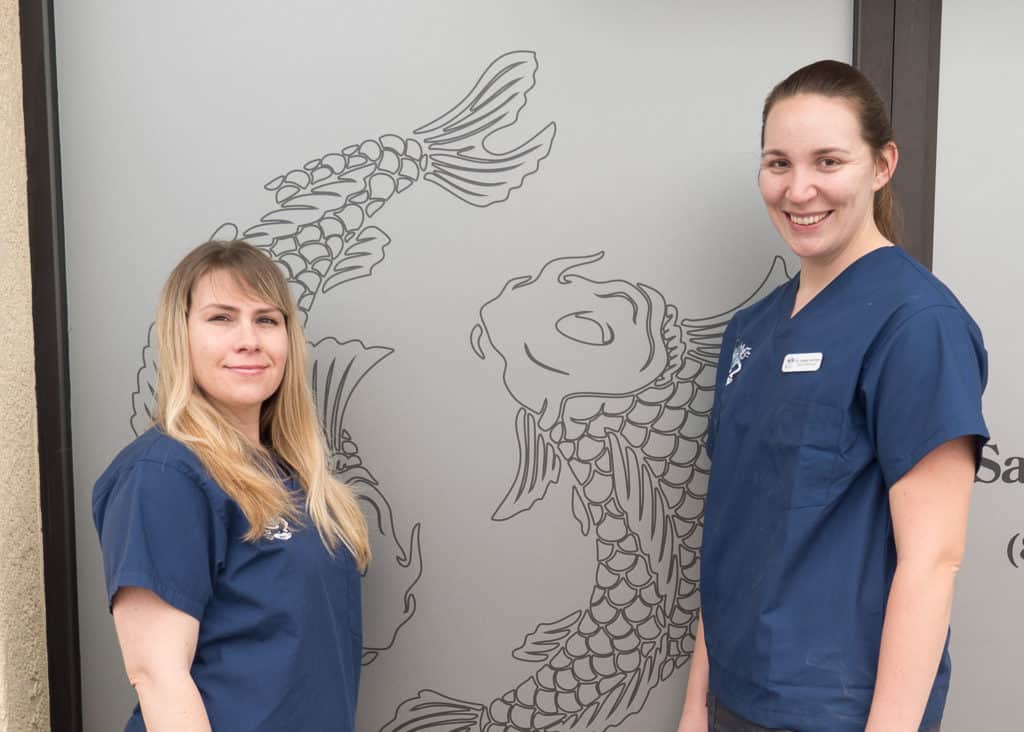Tomorrow, March 13th, 2019 will mark Aquatic Veterinary Service’s 6 year anniversary. It has been quite a year for us, moving out of a bad location into a new facility and getting ready for some new changes and challenges. We’ll be sharing those new updates with you later this week.
In a business where there is no framework, no forecast, no front runner to look at and play off of, you make a lot of mistakes. I have no regrets from any of the mistakes I made along the last 6 years. I only hope I can pass on what I have learned to the next generation of aquatic veterinarians.
In the veterinary community, veterinarians who are able to practice on fish are exceedingly rare. In most veterinary schools, aquatic topics are barely covered, if at all. When I went to Tufts, we had 2 lecture hours on fish. We had 4 on marine mammals for comparison. But most veterinarians out practicing may have no exposure to fish. Of all the veterinarians who see fish, most are involved in mixed private practice, aquarium/zoo work or aquaculture. Those private practices seeing only fish – 2. Myself and a colleague in Texas are the only two veterinarians in the country dedicated to solely helping pet fish.
As our yearly reflection goes, I will answer the most common questions I have been answering on a regular basis.
Question #1: Do you make any money doing this?
Our first few years? Not really. Our last few years as we continue to grow and word gets out. Absolutely, yes. If this job path didn’t show at least minimal feasibility after the first few years, I wouldn’t be here today. In growing a business that has NEVER been attempted before, one has to be aware that it will take considerable more time. We’re in the business of changing how people think about veterinary care, which is a slow process. The general population knows to take a sick cat, dog, horse, bunny or snake to the vet. It is still not common knowledge to take your fish to the vet.
In conclusion, I am making money. It’s not comparable to a small animal vet at this point, but if our trends continue as they have over the next few years, we will surpass them. It’s a marathon, not a sprint.
Question #2: Why are you doing this?
I got into aquatics when I was in undergraduate school at URI. I had time to complete >1,500 volunteer hours at Mystic Aquarium, where I learned all about the fascinating world of fish. I always wanted to learn more about their care and keeping. I entered veterinary school figuring I’d end up at an aquarium, but I was hesitant to be a part of a bureaucratic system. In private practice, one of the best parts is I get to call the shots. From what I have seen over the last 6 years, there is a great need for fish veterinarians. The biggest hurdle is linking sick fish with veterinary care, not the internet. For more on my background, read our famous article, “Why A Fish Vet?”
Question #3: What is the biggest challenge in your field of veterinary medicine?
Dr. Google has never received a medical degree of any kind. Still, owners trust the internet more than a veterinarian’s perspective. Why? Because it costs real money. Sorry, but you get what you pay for. Free advice without any education or expertise ends up in a lot of dead fish. New fish owners are the worst offenders and will often drop out of the hobby entirely after the first big disaster. Now, many of these people simply don’t know that fish veterinarians exist. We have tried to build up our website to catch these people before they fall down the internet rabbit hole, and after 6 years and 200 fish articles, it’s starting to gain speed. For those of you regular readers, we rely on you to share your knowledge of fish veterinarians with your friends, family and neighbors. Our specialty will continue to struggle because no one knows we exist.
Question #4: What is the best thing fish owners can do to keep their fish healthy?
“Maintain your water quality” will likely be my catchphrase for life. Maintaining your aquatic environment for your fish is the most significant contribution to your fishes’ overall health. It comes down to keeping up with your regular maintenance. Most problems occur when people get lazy and skip a cleaning, or two, or all of them. We recommend you put it on the calendar and make it a priority. For everything you’d ever want to know about water quality, check out this free webinar.
So as we cross into our 7th year of service, we thank all of you for your continued interest. We strive to help all fish owners, no matter what the species or where you are. If you have any topics you would like discussed, please let us know. We thank you for your dedication to fish health.
Sincerely, Jessie Sanders, DVM, CertAqV

Interested to see how veterinary and human medicine education measure up? Watch Dr. Jessie Sanders and her sister, human surgeon, Dr. Bailey Sanders, compare their experiences.


Congratulations on 6 years making the world a better place for pet fish!!! We appreciate your work and wish you continued success!